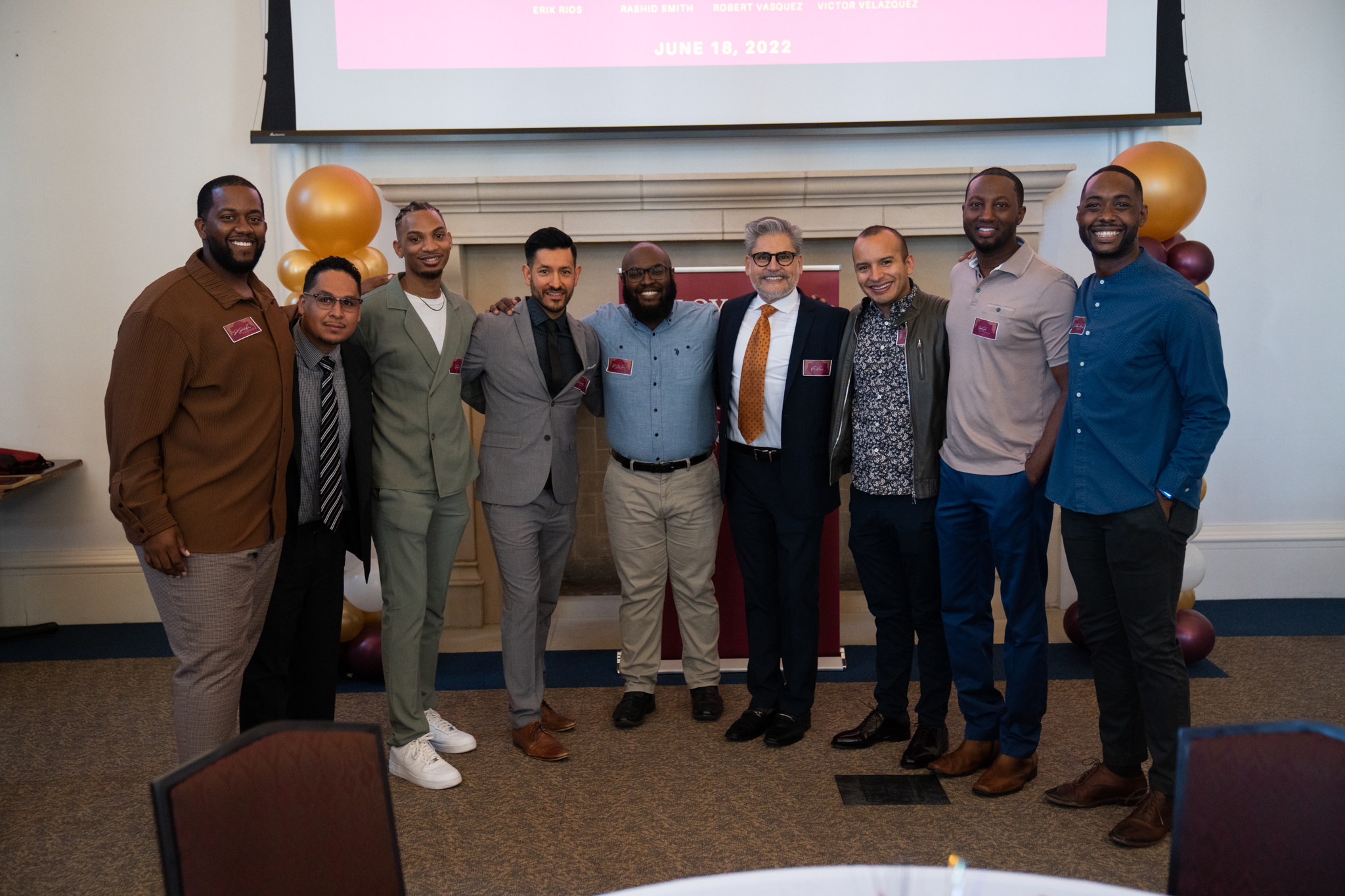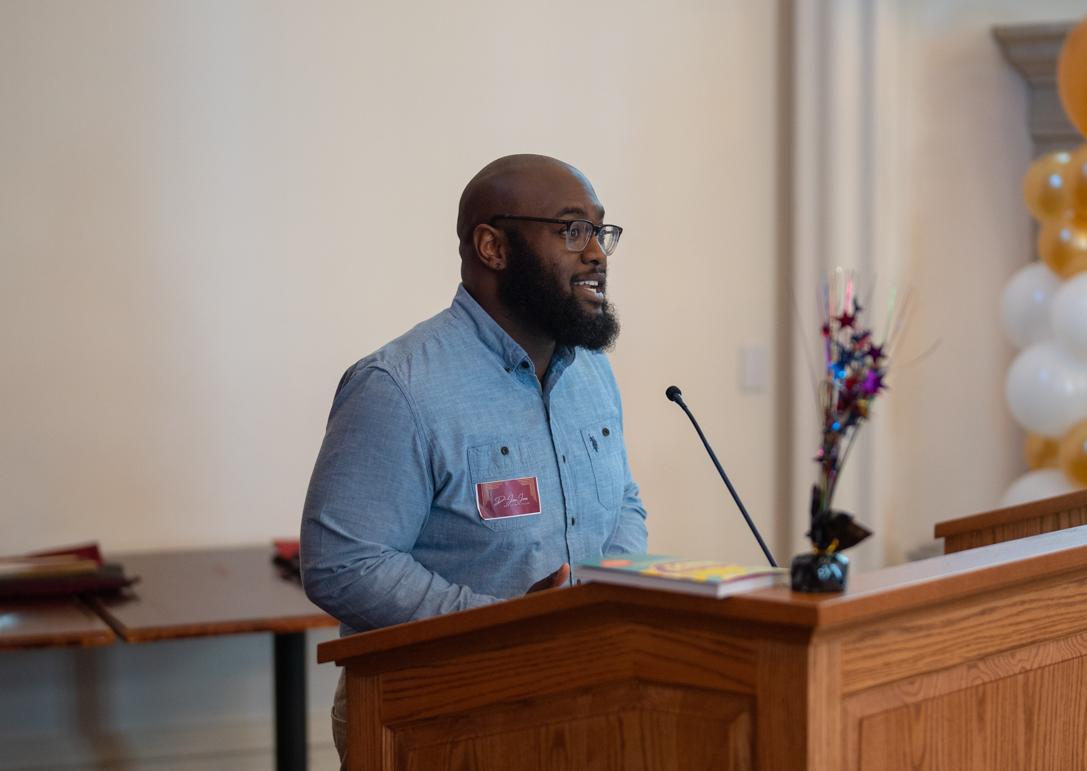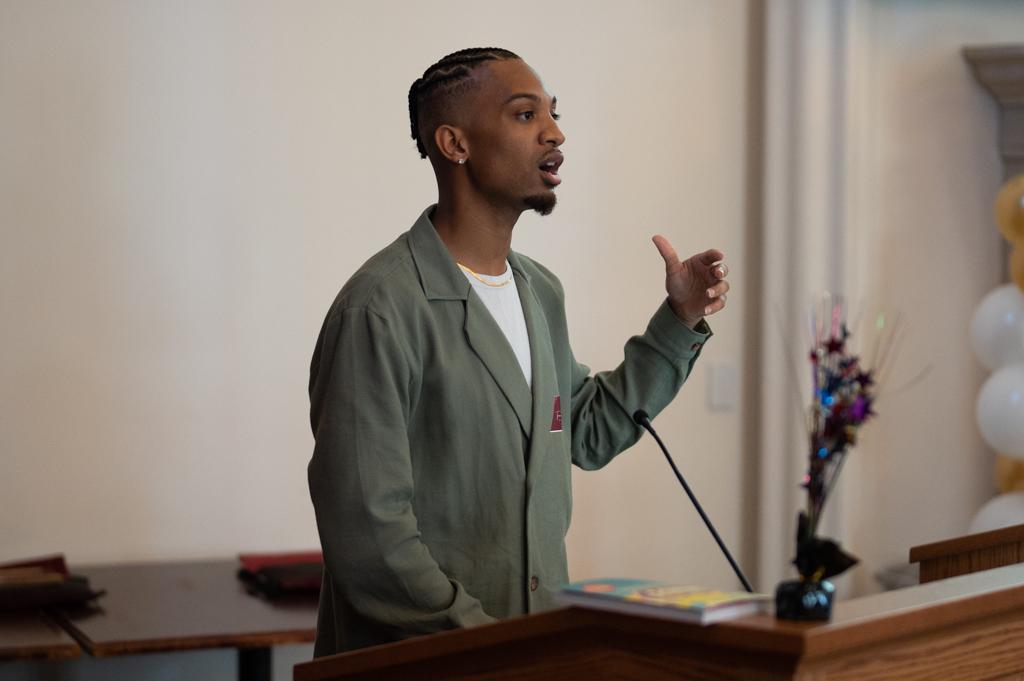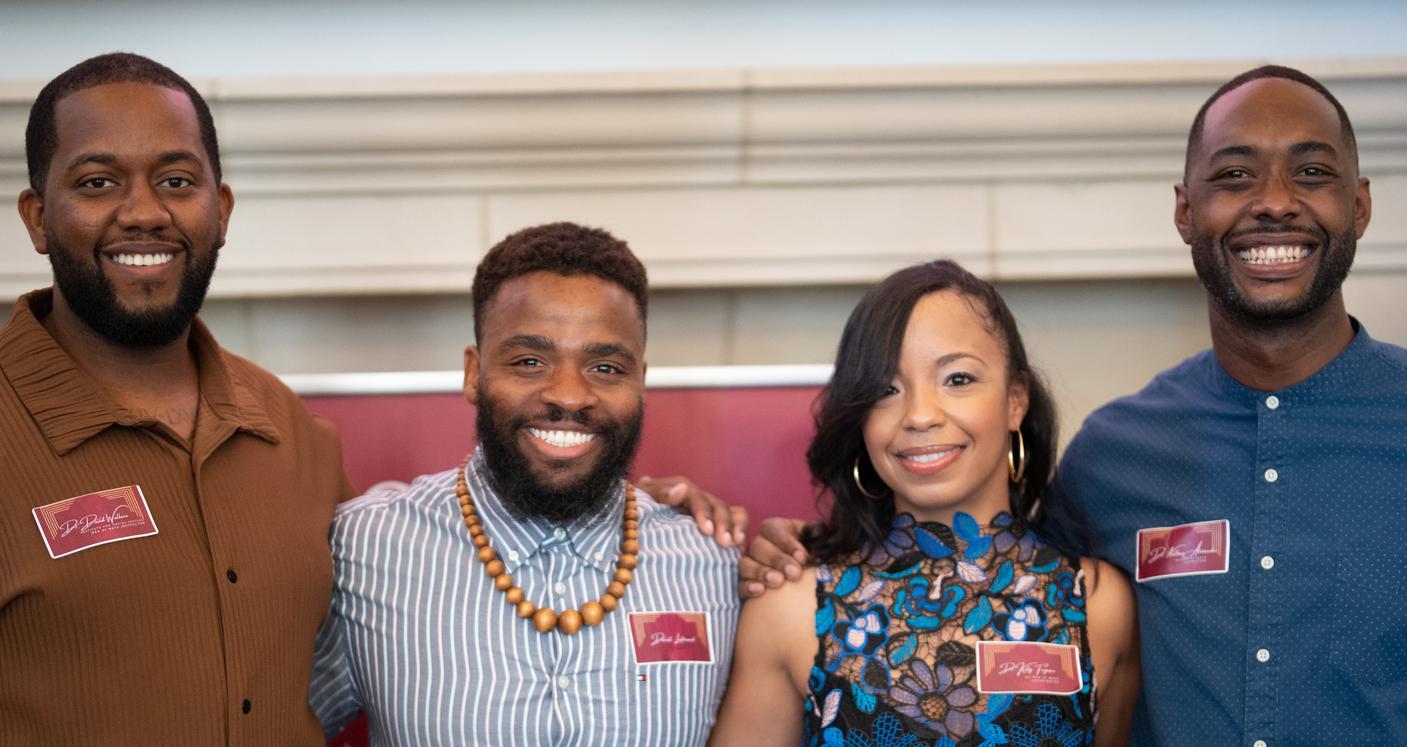Strengthening Skills and Building Community Among Students and Teachers Underrepresented in STEM

Segregation. Systemic racism. The index of dissimilarity. These are the topics you'll find on D'Juan James' syllabus for his high school algebra class.
When James was a student, math was just numbers. "I naturally liked math so that was fine, but this is a totally different generation," says James, a teacher at Butler College Prep in Chicago's Pullman neighborhood. "If we don't restructure how we teach them, we'll lose them."
Black and Latinx people have historically been — and continue to be — underrepresented in science, technology, engineering and mathematics (STEM) careers. In 2019, the STEM workforce was 9 percent Black and 8 percent Hispanic, despite Black and Hispanic people making up 12 and 17 percent of the US workforce, respectively. Additionally, research has consistently shown that having same-race teachers boosts educational attainment for Black students, and teachers of color are a benefit to all students. However, the latest demographic data shows that only 7% of public school teachers are Black and only 9% are Hispanic.
As a Black male teacher in a school where 95 percent of students are Black and low-income, James is well positioned to make an impact. And as a new graduate of the Institute for Racial Justice's Men of Math (M2) Fellowship, he's well prepared. "This program completely shifted teaching for me," said James.

The Men of Math (M2) Fellowship is a cohort-based program, developed in partnership with Thrive Chicago and My Brother's Keeper in Chicago. It equips teachers, particularly Black and Latinx men, with the skills and support to better engage students enrolled in STEM courses. The program also aims to retain more STEM teachers by building a stronger sense of community and more culturally relevant pedagogical approaches that are rarely found in grades K-12 STEM classes.
The fellowship’s first cohort of eight male math teachers received a $3,000 stipend and attended a series of 10 professional learning community sessions, called PLCs, over the course of six months. The PLCs have two primary focuses. The first is supporting social-emotional wellness and building community, both among the fellows and in their classrooms. The second is developing a race-conscious math curriculum to take back into their schools.

“PLCs provided the fellows with actual applied learning, things that they can take into their classrooms and engage with their students,” said Dr. Kelly Ferguson, an IRJ consultant and the M2 program manager.
The PLCs were led by Dr. Nathan Alexander, an assistant professor at Morehouse College, and Dr. David J. Wallace, a conscious culture curator and consultant. Dr. Alexander facilitated curriculum development while Dr. Wallace worked with the men on leadership development and the creation of “sacred spaces.”
The dual focus — better preparing students while acknowledging the challenges Black and Latinx men face in STEM and teaching spaces — deeply resonated with the participants.
“The opportunity to be in classrooms with Black and Brown youth, to be an honor, and something desirable, is a perspective that will always treat that education as sacred,” said Dr. Nickolaus Ortiz, the keynote speaker at a recent brunch to celebrate the first M2 cohort completing the fellowship. Dr. Ortiz is an expert in math education from Georgia State University in Atlanta.
The strong relationship fellows built throughout the program strengthens their commitment to each other, and to their shared values.
“A few of them expressed some burdens that they have as educators, as men of color in particular,” Ferguson said. “They get equipped with strategies, insights and guidance for how to embrace their agency and how to develop their students as learners with agency as well.”

The fellowship program exemplifies IRJ's mission, vision, and core values.
“IRJ is on the ground in any and every outlet that will help people of diverse backgrounds to self-actualize, to operate optimally, to have opportunities that essentially otherwise do not exist and, or that exist in limited numbers,” Ferguson said. “We’re creating these pathways that do not exist and/or strengthening pathways for populations that are underrepresented in any number of ways.”
At that M2 culmination brunch, Diamond Montana, a fellow completing the program, spoke to both the impact and future of the M2 program, "We need to connect. We need to cultivate. We need to grow."
Segregation. Systemic racism. The index of dissimilarity. These are the topics you'll find on D'Juan James' syllabus for his high school algebra class.
When James was a student, math was just numbers. "I naturally liked math so that was fine, but this is a totally different generation," says James, a teacher at Butler College Prep in Chicago's Pullman neighborhood. "If we don't restructure how we teach them, we'll lose them."
Black and Latinx people have historically been — and continue to be — underrepresented in science, technology, engineering and mathematics (STEM) careers. In 2019, the STEM workforce was 9 percent Black and 8 percent Hispanic, despite Black and Hispanic people making up 12 and 17 percent of the US workforce, respectively. Additionally, research has consistently shown that having same-race teachers boosts educational attainment for Black students, and teachers of color are a benefit to all students. However, the latest demographic data shows that only 7% of public school teachers are Black and only 9% are Hispanic.
As a Black male teacher in a school where 95 percent of students are Black and low-income, James is well positioned to make an impact. And as a new graduate of the Institute for Racial Justice's Men of Math (M2) Fellowship, he's well prepared. "This program completely shifted teaching for me," said James.

The Men of Math (M2) Fellowship is a cohort-based program, developed in partnership with Thrive Chicago and My Brother's Keeper in Chicago. It equips teachers, particularly Black and Latinx men, with the skills and support to better engage students enrolled in STEM courses. The program also aims to retain more STEM teachers by building a stronger sense of community and more culturally relevant pedagogical approaches that are rarely found in grades K-12 STEM classes.
The fellowship’s first cohort of eight male math teachers received a $3,000 stipend and attended a series of 10 professional learning community sessions, called PLCs, over the course of six months. The PLCs have two primary focuses. The first is supporting social-emotional wellness and building community, both among the fellows and in their classrooms. The second is developing a race-conscious math curriculum to take back into their schools.

“PLCs provided the fellows with actual applied learning, things that they can take into their classrooms and engage with their students,” said Dr. Kelly Ferguson, an IRJ consultant and the M2 program manager.
The PLCs were led by Dr. Nathan Alexander, an assistant professor at Morehouse College, and Dr. David J. Wallace, a conscious culture curator and consultant. Dr. Alexander facilitated curriculum development while Dr. Wallace worked with the men on leadership development and the creation of “sacred spaces.”
The dual focus — better preparing students while acknowledging the challenges Black and Latinx men face in STEM and teaching spaces — deeply resonated with the participants.
“The opportunity to be in classrooms with Black and Brown youth, to be an honor, and something desirable, is a perspective that will always treat that education as sacred,” said Dr. Nickolaus Ortiz, the keynote speaker at a recent brunch to celebrate the first M2 cohort completing the fellowship. Dr. Ortiz is an expert in math education from Georgia State University in Atlanta.
The strong relationship fellows built throughout the program strengthens their commitment to each other, and to their shared values.
“A few of them expressed some burdens that they have as educators, as men of color in particular,” Ferguson said. “They get equipped with strategies, insights and guidance for how to embrace their agency and how to develop their students as learners with agency as well.”

The fellowship program exemplifies IRJ's mission, vision, and core values.
“IRJ is on the ground in any and every outlet that will help people of diverse backgrounds to self-actualize, to operate optimally, to have opportunities that essentially otherwise do not exist and, or that exist in limited numbers,” Ferguson said. “We’re creating these pathways that do not exist and/or strengthening pathways for populations that are underrepresented in any number of ways.”
At that M2 culmination brunch, Diamond Montana, a fellow completing the program, spoke to both the impact and future of the M2 program, "We need to connect. We need to cultivate. We need to grow."
